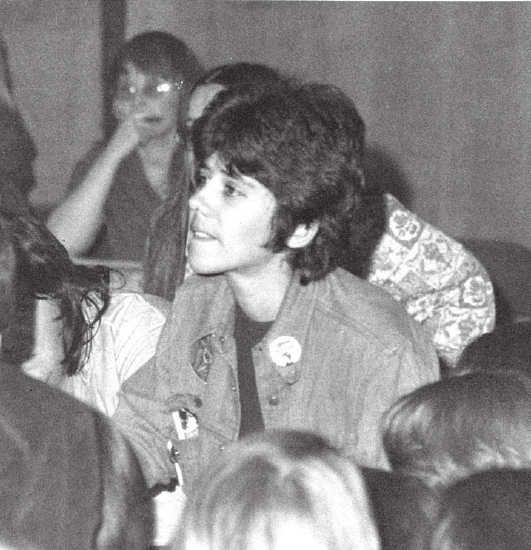3.5: Press
- Page ID
- 68334

THE ADVOCATE, LADDER, HOMOSEXUAL CITIZEN, DRUM, AND VECTOR reflected an increasingly strident demand for gay and lesbian rights in the mid-to-late 1960s. This trend exploded in the period following the 1969 Stonewall Riots, unleashing a tidal wave of unapologetic LGBTQ journalism. GAY in New York, Gay Sunshine in San Francisco, Gay Liberator in Detroit, Killer Dyke in Chicago, and Washington Blade in Washington, D.C., were just a few of the 150 publications being produced by 1972 with an aggregate circulation surpassing 100,000. The publications influenced and reflected a liberated community with their frank language, outrage over LGBTQ discrimination, and celebration of self-expression and open sexuality.

IN 1966, JEANNE CÓRDOVA ENTERED THE Immaculate Heart of Mary convent in Santa Barbara, California, but began questioning her sexual orientation and the church’s anti-lesbian stance. She left the convent and committed herself to the Los Angeles gay rights and feminist movements. She became president of the Los Angeles chapter of the Daughters of Bilitis, founded the lesbian-feminist publication The Lesbian Tide, and became a columnist and human rights editor for the Los Angeles Free Press. In 1973, she was a key organizer of what became the largest lesbian conference of the time, and in 1981, founded the Community Yellow Pages, the nation’s largest and most comprehensive LGBTQ directory.
In 1967, Craig Rodwell opened the first LGBTQ bookstore, The Oscar Wilde Bookshop in New York, to promote the rich and millennial-old heritage of LGBTQ culture and identities. The bookstore soon became an alternative to the bar as a center for LGBTQ gatherings and for the exchange of information. New York’s first gay pride march in 1970 was organized out of Rodwell’s bookstore.
An LGBTQ literary movement blossomed in the 1970s. Among the great books of the era, Jonathan Ned Katz’s Gay American History published in 1976 led to a cavalcade of LGBTQ historical texts. Although the LGBTQ bookstore was often the only place to find LGBTQ literature, a few lesbian and gay books crossed over to mainstream booksellers. Patricia Nell Warren’s The Front Runner, Rita Mae Brown’s Rubyfruit Jungle, Armistead Maupin’s Tales of the City, and Andrew Holleran’s Dancer from the Dance proved that gay and lesbian literature could have success with mainstream audiences.

POET AUDRE LORDE WAS A PIONEER of intersectionality. She insisted on recognition of herself as black, feminist, and lesbian. After completing a degree in library science, Lorde went on to lecture at several universities, write volumes of poetry, and co-found the feminist Kitchen Table: Woman of Color Press. From 1991 until her death, she was New York State’s Poet Laureate. From her essay "The Master's Tools Will Never Dismantle the Master's House": “Those of us who stand outside the circle of this society's definition of acceptable women; those of us who have been forged in the crucibles of difference -- those of us who are poor, who are lesbians, who are Black, who are older -- know that survival is not an academic skill. It is learning how to take our differences and make them strengths.”


